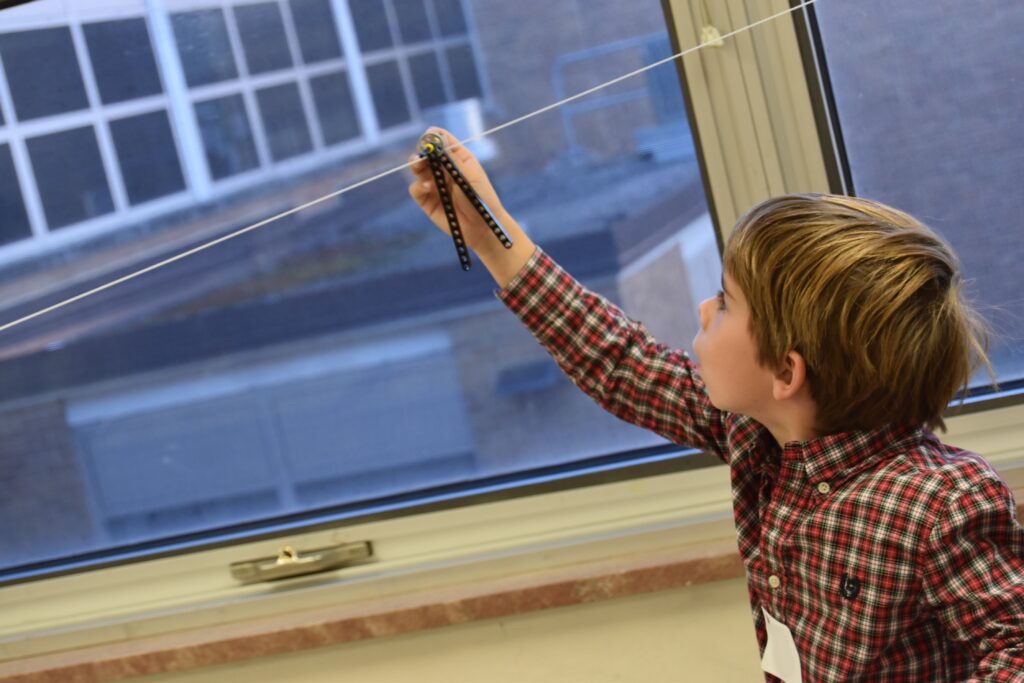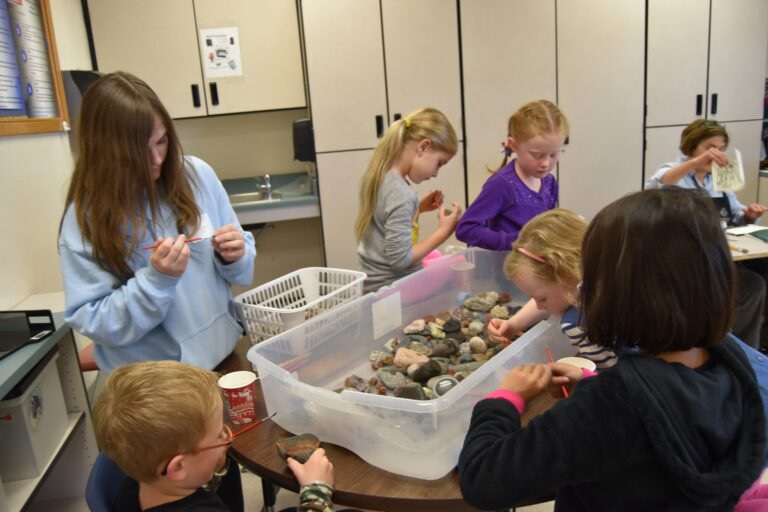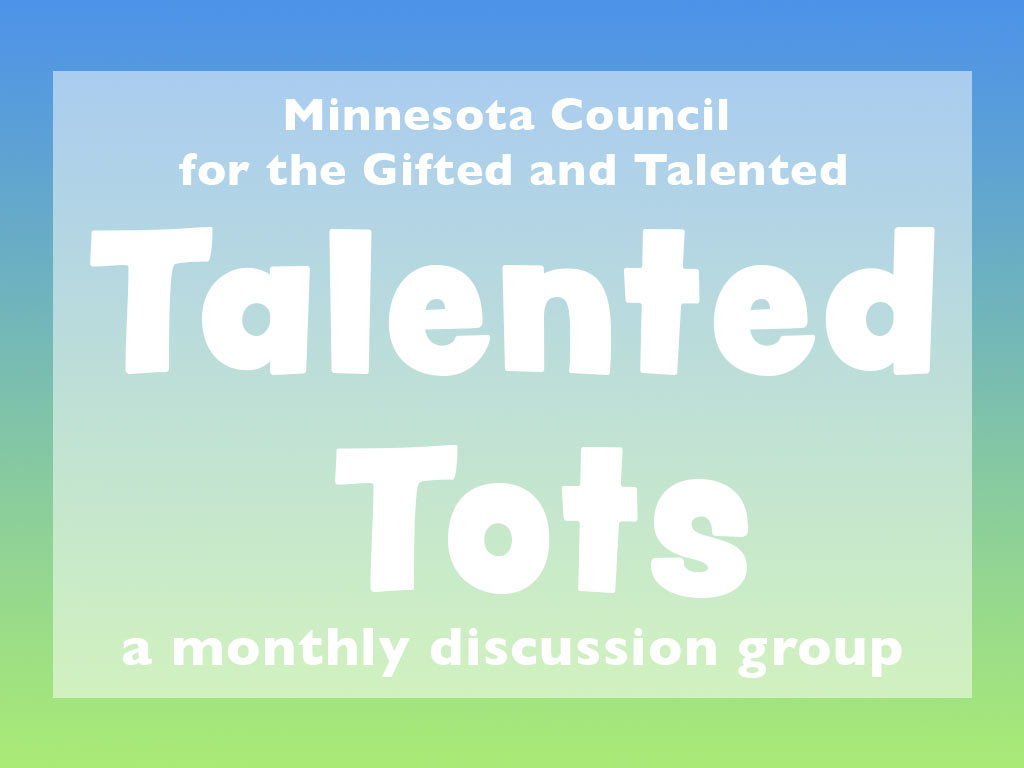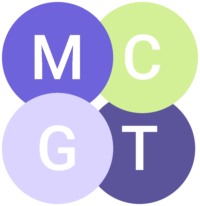Preschool Behaviors in Gifted Children
Gifted preschool children tend to exhibit a variety of behaviors, and they will often initiate their own learning. Their insatiable curiosity is a reliable hallmark of their scope of intelligence. Although strong parental or preschool involvement and instruction can support any child’s acquisition of skills, gifted & talented children will often gain those skills at an accelerated rate compared to their age-level peers.
By Deborah L. Ruf, Ph.D.
When very young children demonstrate precocious behaviors, such as seeming to understand words and adult conversations that are beyond their years, or strong interest in things and topics that generally interest older children, their parents may wonder if their baby or preschool child might be gifted. Below are some guidelines to help you know if you have a gifted child. The earlier any of the behaviors are exhibited, the more likely the child may be highly to exceptionally gifted. These lists are merely guidelines; not all behaviors need to be present to indicate probable gifted-level intellect.
Birth to 4 months
- Makes eye contact soon after birth and continues this interaction and awareness of others
- Makes eye contact while nursing
- Does not like to be left in infant seat
- Almost always wants someone in the room interacting with him or her
- Very alert; others notice and comment
4 months to one year
- Seldom “mouths” toys
- Shows purpose with toys, seldom destructive or arbitrary
- Pays attention when read to or watching TV
- Plays pat-a-cake and peek-a-boo
- Waves bye-bye, says ma-ma, da-da, and bye-bye
- Follows directions, doesn’t miss a thing, knows what’s next in routine

One year to 18 months
- Obvious interest in competence; has “fits” when not permitted to do it himself (or herself)
- Long attention span
- Obvious interest in letters, numbers, books, and talking
- Surprisingly good eye-hand coordination for shape sorters, putting things in and taking things out
- Uses puzzles and toys that are beyond stated age level
- Does not chew on or tear books
- Tries hard to please; feelings easily hurt
18 months to 2 years
- Talking, clear understanding of others’ talk
- Knows many letters, colors, and numbers. The brightest gifted children often know how to count and organize by quantities, know many colors and shades, and know the alphabet in order or isolation. This is at their insistence, not parental drill.
- Tenacity; needs to do it own way and not done until they are done
- Not easily distracted from what they want to do; don’t even try tricking them with distraction
- Can sing a song with you, knows all the words and melody
- Clearly exhibits a sense of humor beyond typical “bathroom humor”
- Although active, activity is usually very purposeful and important to the child
- Interested in activities, machinery, and implements that are complex and maybe delicate, e.g., CD player, computer. Can handle them well, if allowed.
- Bossy; quickly loses interest in any children who cannot do what they want to do.
- Grandparents or other family members may have started to complain that your child is willful and perhaps spoiled
- Draws and identifies what they’ve drawn
- Stacks block towers of 6 blocks or more
- Recognizes basic shapes and pointing them out elsewhere
- Notices beauty in nature
- Pays attention to the feelings of others
- Needs to know “why” before complying
Two to three years
- Excellent attention for favorite TV or videos
- Shows tremendous interest in printing letters and numbers
- Will catch your mistakes, hold you to your word, and not forget promises or changes of plans.
- Frustrated with own lack of ability, seems to obsess on some things
- People outside the family start to comment on how smart your child is
- Has trouble playing with other children same age, prefers adults or much older children but is not a lot of fun for them because child is still too immature
- Throws fits or tantrums especially when thwarted in doing something his or her own way to completion
- Can play with games, puzzles, and toys that state an age range twice their own or more
- Early reading, e.g. know most store and street signs, recognize many names, labels and words in print
- Most tantrums precipitated by lack of adult respect or understanding; child is more likely to cooperate than simply comply with adult demands
- Highly competitive
Three to four years
- Highly inquisitive
- Highly talkative
- Increasing interest in books and reading and finding answers there
- Loves to debate and reason and argue
- Can do many things on the computer
- May become fearful of what they don’t understand, tend to think ahead and worry
- Show interest in how and why; ask questions and listen to answers unlike most age-mates
- Interested in strategy and application of rules; dismissive and annoyed at others who don’t “get it”
- Bossy
- Creative
- Cleverly manipulative
- Perfectionistic, even obsessive about developing own skills

Four to five years
- Many start reading simple books then chapter books almost spontaneously before they are five
- Interested in mature subjects but can be frightened by their own lack of perspective (e.g., natural disasters are both fascinating and frightening)
- Intuitive grasp of numerical concepts and mathematic reasoning; many can effectively compete with older children and adults in board and card games
- May start to question the meaning of life, their own worth, etc.
- Huge vocabulary, huge memory for facts, events, and information
- Increasingly facility with computers and keyboarding, video games
- Obvious abstract reasoning ability, love of concepts and theorizing; philosophical and speculative
- Great need to engage others in meaningful and intelligent conversation about the things that interest them (the children, not necessarily the adults)
Summary: Gifted preschool children tend to initiate their own learning. In fact, their curiosity is one hallmark of their high intelligence. Although strong parental or preschool involvement and instruction can support any child’s acquisition of academic skills, highly intelligent children will gain those skills, and more, at a noticeably faster rate than children who are less intelligent.
(Dr. Ruf is a member of MCGT, formerly on the state Board, and author of Five Levels of Gifted, published by Great Potential Press. As a result of her experience with her own now-adult gifted children, she works as a high intelligence specialist in the Twin Cities.)
(This article was printed in the July/August, 2009 issue of Outlook, a publication of the MN Council for the Gifted and Talented [MCGT].)

Do you have a bright or talented kid between the ages of 1 and 5? Come to MCGT’s monthly discussion group, Talented Tots, to discuss all the hilarity, exasperation, and joy of raising bright young kids with other parents who get it! This supportive parent community is a place to ask questions, share stories, meet new friends, and exchange tips and ideas.
MCGT membership is not required, all are welcome. Find all the details and the Zoom link on our Discussion Group page.
The Minnesota Council for the Gifted & Talented (MCGT) supports families of gifted & talented students and promotes their educational and social emotional needs in Minnesota by providing an annual conference, mini-conferences, national speakers, legislative advocacy, scholarships, opportunities to connect with other gifted families through chapters and parent groups, and more.
Learn more about the benefits of an MCGT membership
We hope that you’ll join us on this journey! JOIN MCGT TODAY!
